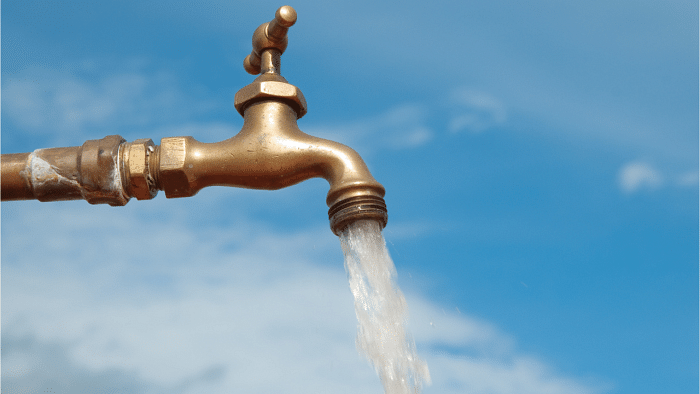
Even though drip irrigation can reduce water usage by 60%, there are few takers in Kuruburu village in T Narasipura, Mysuru district.
Having witnessed the advantages, Siddesh, a sugarcane farmer, explains that it not only saves water but also, "saves on labour, improves yield and doesn't damage the soil."
Drip irrigation is not new to T Narasipura. Yet, just six or seven out of 300 farmers have taken advantage of the system. The reason? "This is an irrigated area, with plenty of water. So people don't feel the need," Siddesh says.
Initial installation costs that can range between Rs 15,000 to Rs 20,000 to set up the system in an acre of land can also discourage small farmers.
"We are trying to educate people about the benefits of drip irrigation. But just 15 - 20% of farmers have implemented it," says Kuruburu Shanthakumar, State president of the Confederation of Farmers' Associations.
"There is a poor understanding of drip irrigation technology," says Rajesh Poddar, Water and Land Management Institute in Dharwad. Poddar says while traditional irrigation has an efficiency of 30 - 35%, drip irrigation is over 80% efficient. Using the right amount of water for the crop also improves yields.
"Our farmers need a live demonstration. When they see the results in their neighbouring farms, they are more likely to implement new technology," he says, adding that the Karantaka government plans to promote this technology in a big way in the coming years.
Soil health
For 50-year-old Boregowda from Shivalli village in Mandya district, an area of concern is reducing fertility in the soil. Boregowda says the introduction of hybrid crops, especially sugarcane, is responsible for this situation.
He says many farmers around his village switched over to the latest hybrid variety of sugarcane attracted by its bumper yield. After two cycles of harvest, however, the yield has declined drastically.
Stripped of nutrients, Boregowda claims that the soil has lost its natural capacity to retain water. Hemanth, a farmer who has stuck to the traditional sugarcane variety, confirms how the hybrid varieties also drain the soil of its nutrients.
Both these farmers say returning to sustainable agriculture has drastically improved their soil health. Over the years, growing organic produce has also allowed the to build a customer base that they market their produce to.